Search
Search Results
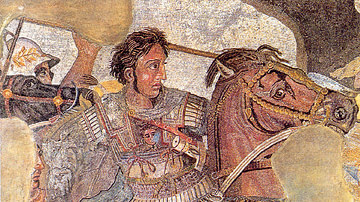
Definition
Alexander the Great
Alexander III of Macedon, better known as Alexander the Great (l. 21 July 356 BCE – 10 or 11 June 323 BCE, r. 336-323 BCE), was the son of King Philip II of Macedon (r. 359-336 BCE) who became king upon his father's death in 336 BCE and then...
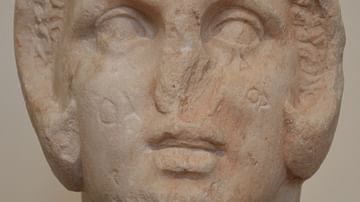
Image
Alexander the Great
Marble head of Alexander the Great, found in the Kerameikos in Athens, c. 300 BCE. Alexander wears the lion’s pelt, a common iconographic feature in depictions of the young king on coins, which hints at his descent from the mythical hero...
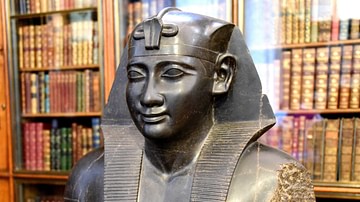
Definition
Ptolemaic Dynasty
The Ptolemaic dynasty controlled Egypt for almost three centuries (305-30 BCE), eventually falling to the Romans. Oddly, while they ruled Egypt, they never became Egyptian. Instead, they isolated themselves in the capital city of Alexandria...
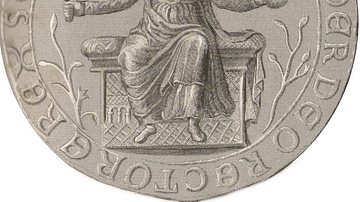
Definition
Alexander II of Scotland
Alexander II of Scotland reigned from 1214 to 1249 CE. Succeeding his father William I of Scotland (r. 1165-1214 CE), Alexander supported the northern barons in England against the unpopular King John of England (r. 1199-1216 CE) and so contributed...

Article
Death of Alexander the Great
In June of 323 BCE, Alexander the Great (r. 336-323 BCE) died in Babylon. His sudden death before his 33rd birthday has long been a point of speculation: was it disease, old wounds, or murder? Regardless of the cause, history ranks him as...

Article
Alexander the Great: A Case Study in Martial Leadership
History is not predictable; in many ways it can take on a life of its own. But sometimes, an individual's sheer presence is enough to bend history to his will. One such individual was Alexander the Great. Through his conviction, vision, mental...
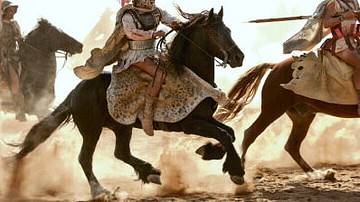
Article
The Army of Alexander the Great
No military commander in history has ever won a battle by himself. To be successful he needs the support of a well-trained army who will follow him regardless of the cost whether it be a stunning victory or hopeless defeat. One need only...
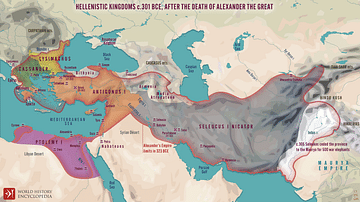
Definition
Wars of the Diadochi
On June 10, 323 BCE Alexander the Great died in Babylon. Although historians have debated the exact cause most agree that the empire he built was left without adequate leadership for there was no clear successor or heir. The military commanders...
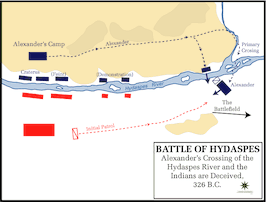
Article
Battle of Hydaspes
For almost a decade, Alexander the Great and his army swept across Western Asia and into Egypt, defeating King Darius III and the Persians at the battles of River Granicus, Issus and Gaugamela. Next, despite the objections of the loyal army...

Definition
Bucephalus
Bucephalus was Alexander the Great's horse and is considered by some to be the most famous horse in history. Alexander and Bucephalus' initial meeting was unique but demonstrated the true character of one of the greatest generals in all of...